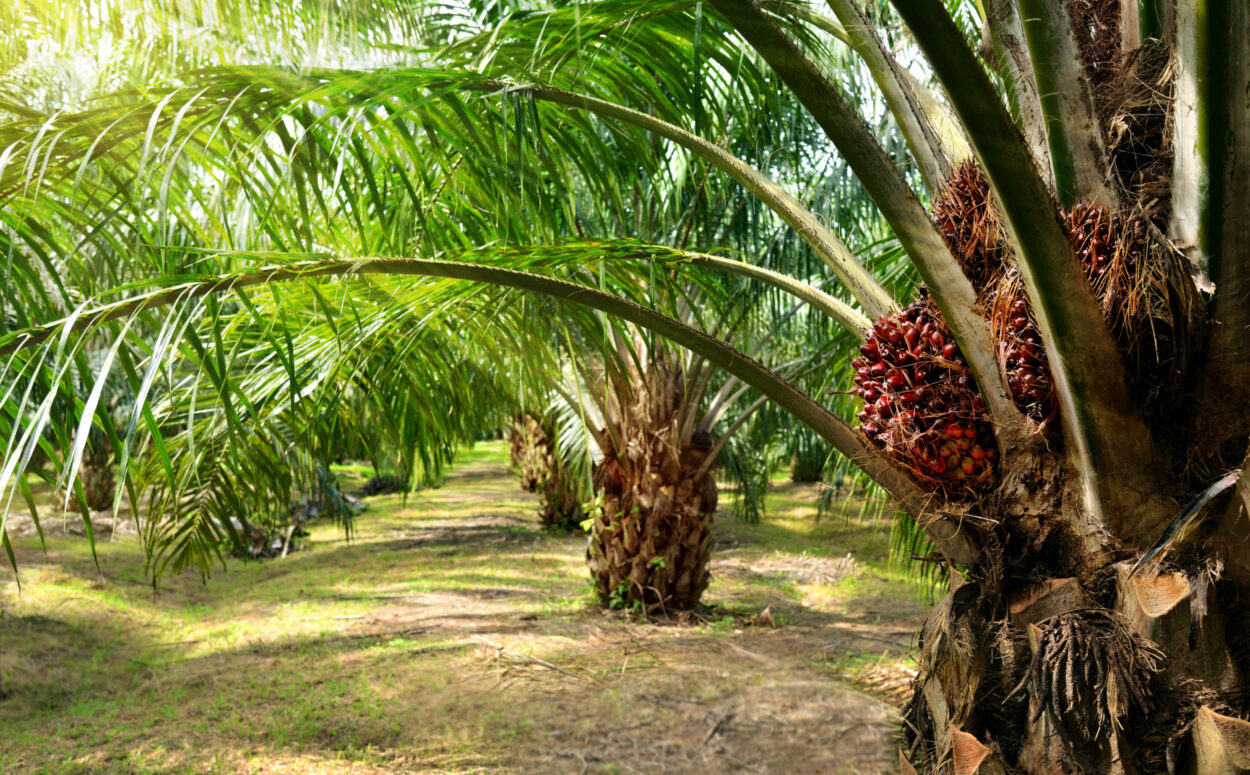
Palm oil is one of the most widely used vegetable oils in the world, found in a wide variety of food and non-food products. It is a versatile and efficient crop, producing more oil per hectare than other oil crops such as soybeans. However, palm oil production has also been associated with environmental and social concerns, such as deforestation, water pollution, and human rights abuses.
Top 5 Palm Oil Producing Countries
The top five palm oil producing countries in the world are:
- Indonesia
- Malaysia
- Thailand
- Colombia
- Nigeria
Indonesia and Malaysia account for over 85% of global palm oil production. Both countries have made commitments to sustainable palm oil production to prevent further deforestation and habitat destruction. Aside from the multinational Roundtable on Sustainable Palm Oil (RSPO), Indonesia has a national sustainability standard for palm oil, the Indonesian Sustainable Palm Oil (ISPO) certification scheme. Malaysia has a similar scheme, the Malaysian Sustainable Palm Oil (MSPO) certification scheme.
Thailand, Colombia, and Nigeria are smaller palm oil producers, but they are all growing in importance. Thailand has a national sustainability standard for palm oil. Colombia and Nigeria do not yet have national sustainability standards, but there are a number of private sector initiatives promoting sustainable palm oil production in these countries.
Top 5 Palm Oil Producing Companies
The top five palm oil producing companies in the world are:
- Wilmar
- Unilever
- Cargill
- Sime Darby Plantation
- Golden Agri-Resources (GAR)
These five companies account for over 50% of global palm oil production. All five companies have made commitments to sustainable palm oil production and are members of the RSPO.
Support for Sustainable Palm Oil
There is growing support for sustainable palm oil from both consumers and businesses. A number of major retailers have committed to sourcing only sustainable palm oil for their products. These retailers include Tesco, Sainsbury’s, and Walmart. A number of major food and beverage companies have also made similar commitments. These companies include Unilever, Nestlé, and PepsiCo.
The World Wildlife Fund (WWF) acknowledges that palm oil can contribute to sustainability if it’s managed properly
Percentage of Sustainable Palm Oil Being Produced and Exported
The percentage of sustainable palm oil being produced and exported is increasing. In 2022, the RSPO certified 19.7% of global palm oil production. This means that nearly one-fifth of all palm oil produced in the world is now certified sustainable.
Unlike the RSPO, which is a voluntary organisation, around 96% of Malaysian palm oil plantations—many of them run by the 300,000 smallholder farmers—are now MSPO-certified under the Malaysia Sustainable Palm Oil (MSPO) scheme. This was a new nationally mandated sustainability standard enforceable by the law, the first of its kind around the world.
These farmers are crucial to the socio-economic development of their communities: in Malaysia, palm oil has been a key contributor to reducing poverty from 50 per cent in the 1960s to just 5 per cent today, with smallholder production accounting for 40 per cent of total palm oil plantation areas.The MSPO is more inclusive than the RSPO as it aims to bring in smallholder farmers and make them more accountable for their actions and farming practice, and while MSPO has the same aims as the RSPO, it is much cheaper for smallholders to participate than RSPO, which is aimed at larger corporate entities with deep pockets.
Palm Oil and Smallholder Farmers
Palm oil is a major source of income for smallholder farmers in many developing countries. An estimated 2.6 million smallholder farmers produce palm oil in Indonesia alone. Smallholder farmers play an important role in the palm oil industry, but they often face challenges such as limited access to land, credit, and technical assistance.
The RSPO estimates that oil palm farming provides an income for over 7 million smallholder famers globally.
Sustainable Palm Oil Initiatives
There are a number of sustainable palm oil initiatives underway in producer countries. These initiatives aim to promote sustainable palm oil production practices and improve the livelihoods of smallholder farmers. Some examples of these initiatives include:
- The Indonesian Sustainable Palm Oil (ISPO) certification scheme
- The Malaysian Sustainable Palm Oil (MSPO) certification scheme
- The Roundtable on Sustainable Palm Oil (RSPO) certification scheme
- The Palm Oil Innovation Group (POIG)
Conclusion
The palm oil industry is facing a number of challenges, but there is also a growing commitment to sustainable palm oil production. The top five palm oil producing countries and companies have all made commitments to sustainability. Consumer and business support for sustainable palm oil is also growing. As a result, the percentage of sustainable palm oil being produced and exported is increasing.